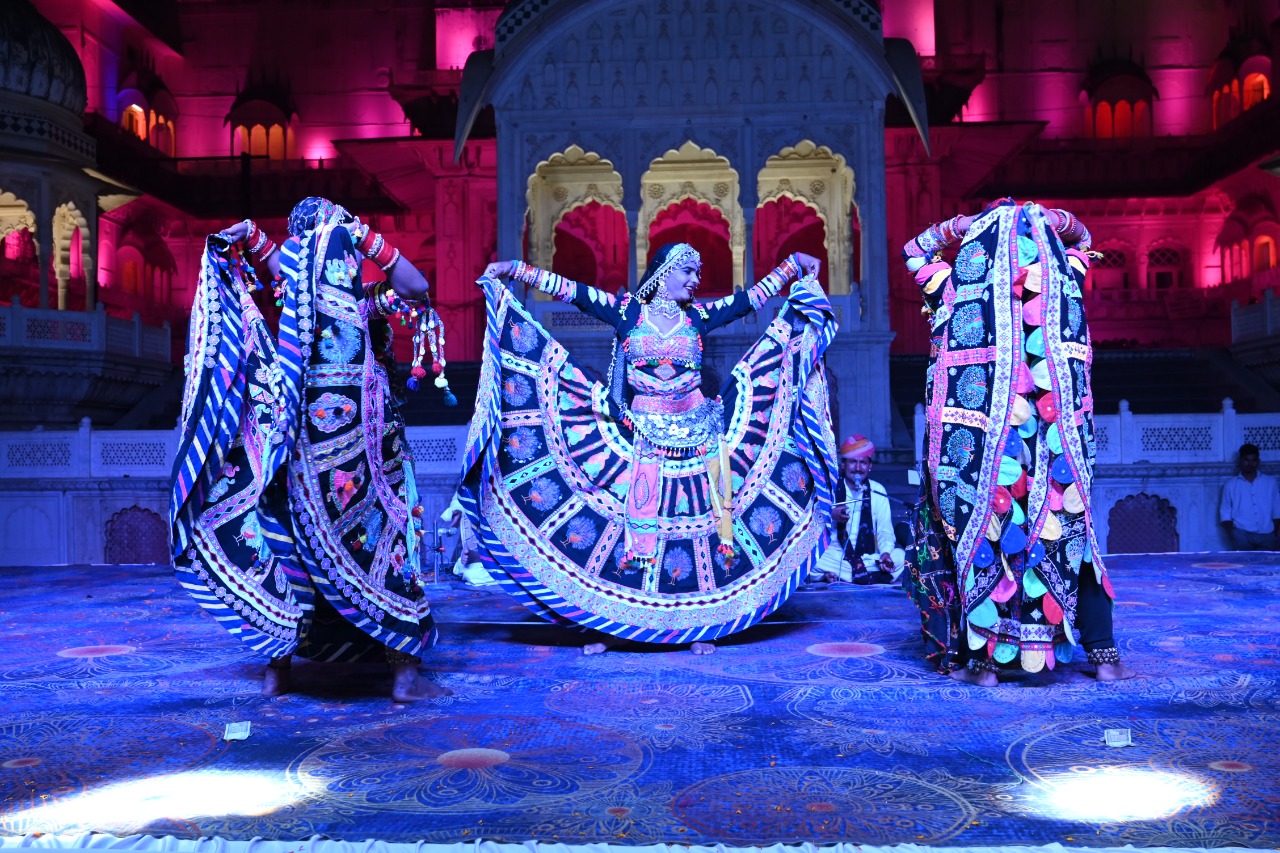While Pushkar has its camels and Jaipur its literature, the historic city of Alwar—nestled in the lap of the green Aravalli hills—hosts a celebration that is equally mesmerizing but far more intimate: the Matsya Festival.
Known as the Lion Gate of Rajasthan, Alwar transforms every winter into a kaleidoscopic hub of folk music, adventure sports, and royal pageantry. If you are looking for a cultural experience that blends the grandeur of Rajput history with the raw energy of local traditions, the Matsya Festival is your calling.

Legends & Myths: The Fish Connection
The name Matsya (Sanskrit for Fish) is not merely decorative; it is rooted in the deepest layers of Indian mythology and history.
The Matsya Avatar
According to Hindu mythology, Lord Vishnu took his first avatar as a giant fish (Matsya) to save Manu (the progenitor of humanity) from a catastrophic deluge. It is believed that this ancient region is spiritually connected to that primordial event, symbolizing preservation and new beginnings.
The Mahabharata Connection
The region of Alwar was the heart of the ancient Matsya Kingdom, one of the sixteen great Mahajanapadas (republics) of Vedic India.
The Pandavas' Hideout: Legends say that during their 13th year of exile (Agyatvas), the Pandavas hid in the Kingdom of Virata (modern-day Bairat, near Alwar).
Bhim's Lat: You can still find places like Pandupol, where Bhima is said to have smashed a path through a cliff with his mace. The festival celebrates this ancient lineage, claiming a heritage that predates many other Rajput states.
Customs & Rituals: A Spiritual Start
The festival is not just a fair; it is a living ritual that involves the entire community.
1. Maha Aarti at Jagannath Ji Temple
Unlike the famous temple in Puri, the Jagannath Temple in Alwar depicts the deity in a unique form. The festival kicks off here with a grand Maha Aarti. The sound of conch shells and giant bells echoes through the city, invoking blessings for the festivities.
2. The Royal Procession (Shobha Yatra)
A throwback to the princely era, a massive procession winds its way from the City Palace through the narrow bazaars. It features:
Caparisoned Elephants & Camels: Adorned in heavy jewelry and velvet.
Folk Artists: Troupes of dancers performing on the move.
The Palace Guards: Men dressed in traditional royal uniforms carrying antique weaponry from the museum's collection.
3. Deepdan: The Festival of Lights
The most visually stunning ritual takes place at Sagar Lake, a tank located right behind the City Palace. At dusk, thousands of lit earthen lamps (diyas) are set afloat on the water. The flickering lights reflecting against the palace walls and the dark Aravalli hills create a scene of ethereal beauty, rivaling the Deepotsav of Ayodhya or Varanasi.
Traditions: Music and Dance
The cultural nights (Lok Rang) held at the Mahal Chowk are the heartbeat of the festival.
The Sound of the Bhapang
Unique to the Mewat region (which includes Alwar) is the Bhapang, a rare single-stringed percussion instrument. It is often described as a "talking drum" because of its variable tension.
The Jogis of Mewat: You will see performers (often Muslim Jogis) playing this instrument while reciting ballads of folk heroes and mythological tales. It is a haunting, rhythmic sound you won't hear elsewhere in Rajasthan.
Dance Forms
Chari Dance: Dancers balance flaming brass pots on their heads.
Ghoomar: The classic swirling dance of Rajput women.
Kalbelia: The acrobatic "snake charmer" dance performed by the Kalbelia tribe.
Culinary Delights: The Taste of Alwar
No blog on Alwar is complete without mentioning its food. The Matsya Festival sets up a dedicated "Food Court" offering these local specialties:
1. Alwar Ka Mawa (Milk Cake)
This is Alwar's global claim to fame. Invented by Baba Thakur Das in 1947, this sweet is made by slow-boiling milk for hours until it caramelizes into a brown, fudgy, grainy texture.
Tip: Buy it fresh from the "Kalakand Market" near the Hope Circus if you want the authentic taste.
2. Kadhi Kachori
Unlike the dry kachoris of other regions, Alwar serves its spicy onion or dal kachoris drowned in a tangy, spicy Kadhi. It’s the ultimate winter comfort food.
3. Gatte ki Sabzi & Bajre ki Roti
Staple Rajasthani fare that is cooked in abundance during the festival. The Gattas (gram flour dumplings) here are known to be exceptionally soft.
Adventure & Activities
For those who want more than just history, the festival utilizes the stunning landscape for adventure:
Paddle Boat Race: Held at the scenic Siliserh Lake (15km from the city), this is a crowd favorite.
Turban Tying Competition: Visitors are encouraged to participate!
Hot Air Ballooning & Parasailing: Subject to wind conditions, these offer a bird's-eye view of the forts and hills.
Travel Guide: Planning Your Visit
Best Time to Visit
The festival is held in late November. The weather is perfect—sunny days (25°C) and chilly nights (10°C).
Reaching Alwar
By Train: The Shatabdi Express and Vande Bharat connect Alwar to Delhi (2.5 hrs) and Jaipur (2 hours).
By Road: A smooth drive from Delhi (via NH48/Bhiwadi) or Jaipur.
Stay Recommendations
Luxury: Hill Fort-Kesroli (Neemrana) – A 14th-century fort hotel.
Heritage: Dadhikar Fort – A boutique heritage property in the hills.
Budget: Several hotels near Alwar Junction and Nangli Circle.
Pro-Tip
Combine your festival trip with a Tiger Safari at Sariska Tiger Reserve (35km away). The forest is lush green in November, and sighting chances are decent!
